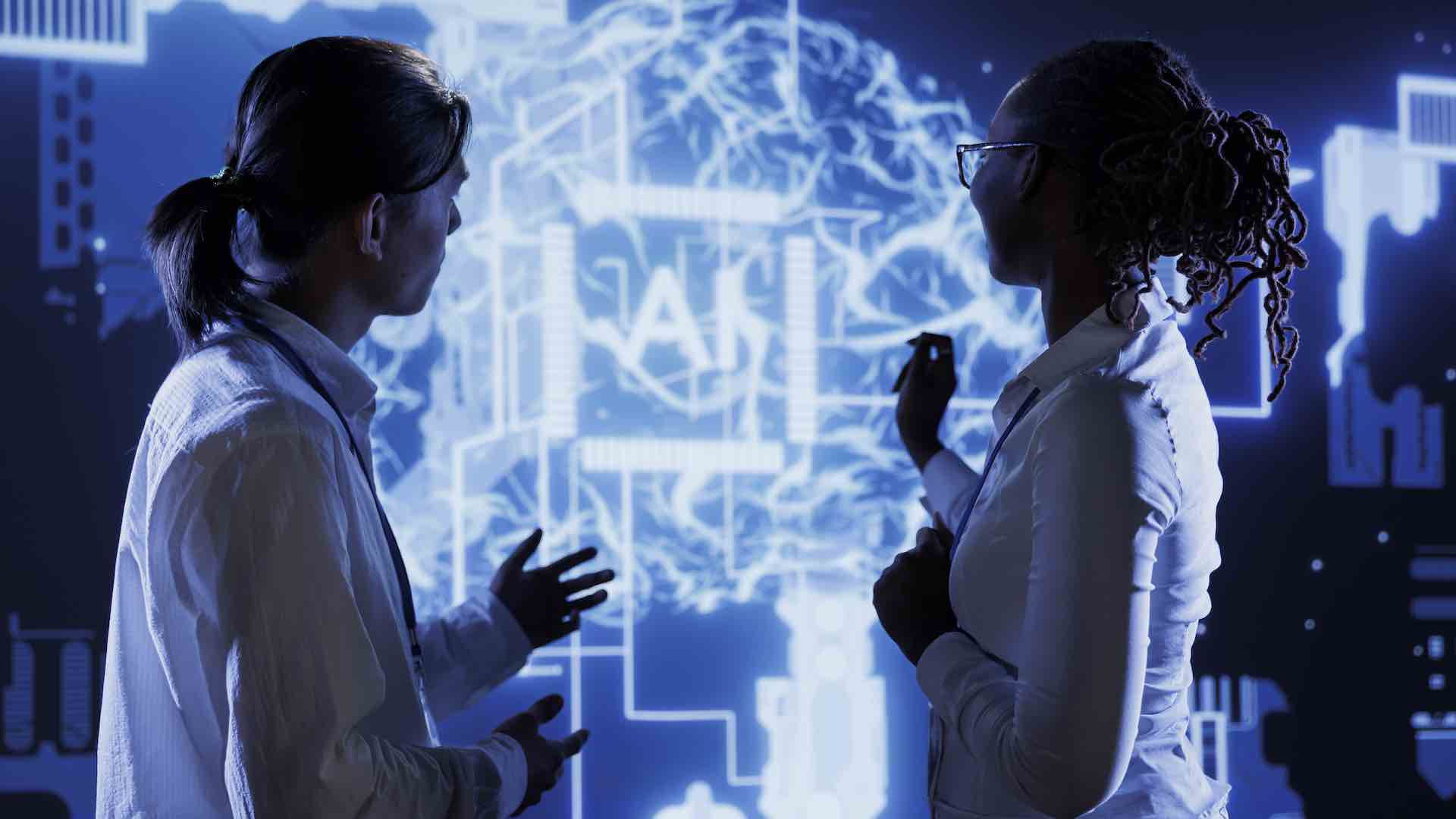MENA Newswire News Desk: Artificial intelligence (AI) is expected to transform industries globally by creating new job opportunities rather than eliminating them. According to the World Economic Forum, AI is projected to generate 97 million new jobs by 2025, even as it displaces 85 million. This net positive impact stems from AI’s ability to automate repetitive tasks, allowing businesses to innovate and scale, while enabling workers to shift toward more complex and creative roles.

Jensen Huang, CEO of NVIDIA, has described AI as the “greatest job engine that the world has ever seen.” Speaking at the 2021 GPU Technology Conference, Huang emphasized that AI will fundamentally reshape industries, from healthcare to education and creative arts, requiring human expertise to manage AI-driven systems. He noted that “every company will become an AI company, creating new services and markets powered by AI.” Huang’s comments highlight the emerging consensus that AI will be a key driver of job creation.
In healthcare, AI is already transforming the way professionals approach diagnostics and treatment. According to a report from PwC, AI could contribute up to $150 billion annually to the U.S. healthcare economy by 2026. This growth is expected to create new roles for specialists tasked with managing and interpreting AI systems. These tools are not only making healthcare more efficient but are also enhancing the roles of healthcare professionals, allowing them to focus on patient care while AI handles data-intensive tasks.
The financial, logistics, and retail sectors are also experiencing rapid AI adoption. McKinsey & Company reports that AI will drive demand for professionals skilled in data management, AI system oversight, and business decision-making. As AI becomes increasingly integral to these industries, new roles will emerge for data scientists, machine learning engineers, and AI trainers, who will work alongside AI to ensure businesses can effectively leverage its potential.
Sundar Pichai, CEO of Google, has called AI “one of the most profound technologies humanity has ever worked on in a BBC interview.” Pichai believes AI’s potential to create opportunities is vast and still largely untapped. He noted that AI could significantly enhance human capabilities, improve productivity, and unlock new jobs as industries evolve and adapt to technological advancements.
Mark Zuckerberg, CEO of Meta, has similarly championed AI’s job-creating potential. In a 2017 interview with Forbes, Zuckerberg stated that AI would create new fields of work in the next decade. “AI will improve productivity, meaning we will need more people to do jobs that are more meaningful and fulfilling,” Zuckerberg explained. He emphasized that AI will allow workers to focus on creative, strategic tasks, rather than repetitive functions, making work more engaging.
Apple CEO Tim Cook has also shared his optimism about AI’s potential in Fortune magazine. He believes that AI will not eliminate jobs but instead augment human capabilities, making people more productive and creative in their work. In a 2019 interview, Cook remarked that “AI will create jobs by helping people do their jobs better,” underscoring the role AI will play in improving productivity across industries.
Sam Altman, CEO of OpenAI, in an interview with The Verge adds that AI will democratize creativity, enabling individuals to focus on higher-value tasks. He believes that while AI will automate routine and repetitive jobs, it will ultimately create more jobs than it displaces. AI tools like GPT-3 and DALL·E are already assisting workers in creative industries, helping them scale their output in content creation, marketing, and design.
Even as AI continues to create new opportunities, leaders stress the importance of preparing the workforce for an AI-driven future. Jeff Bezos, founder of Amazon, in an interview with Business Insider has emphasized the need for upskilling and reskilling workers as industries integrate AI into their operations. Bezos remarked that “technology, including AI, will continue to evolve, but the workforce will evolve with it.” He noted that companies must invest in training programs to help workers adapt to new roles created by AI.
Microsoft CEO Satya Nadella has also highlighted the role of AI in empowering people. “AI will be the most profound technology we develop, but it will always be about empowering people to do more,” Nadella said. He emphasized that AI should be viewed as a tool to augment human capabilities, rather than replace them, enabling workers to focus on more strategic, creative tasks that enhance productivity.
While Tesla and SpaceX CEO Elon Musk has warned about potential risks associated with AI speaking to CNBC, he acknowledges that AI will create more meaningful work for many people. Musk has stated that “AI will allow for more meaningful work, creating jobs that enable people to focus on more rewarding, fulfilling tasks.” Musk envisions a future where AI takes over mundane, repetitive jobs, freeing workers to engage in high-level, creative tasks that bring personal and professional satisfaction.
The future of work will see humans and AI working together, with AI acting as a tool for enhancing human creativity, productivity, and strategic decision-making. As industries continue to integrate AI, it will be essential for governments and businesses to support workers in developing the skills necessary to thrive in an AI-enhanced economy. With the right investments in education and training, AI’s job-creating potential can be fully realized.
